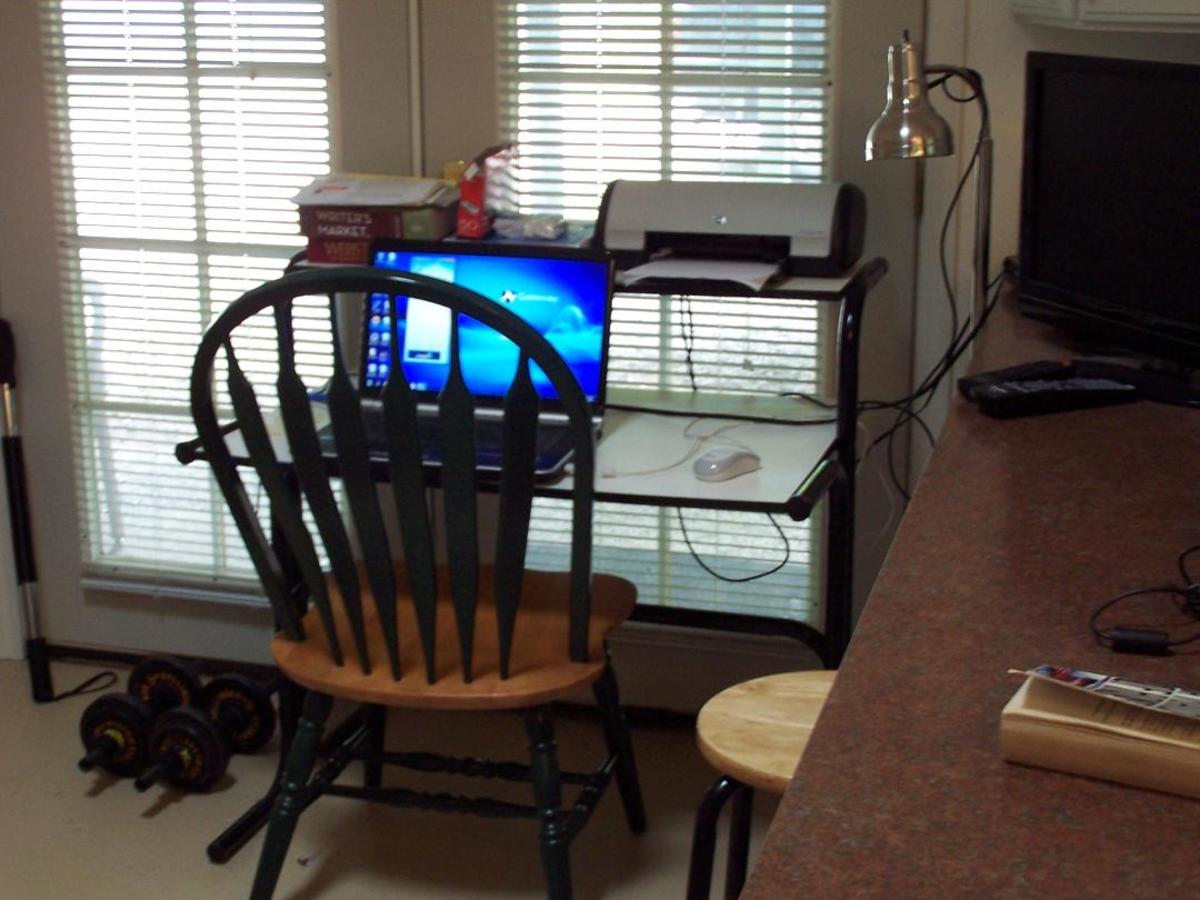Writing Exercises for Inspiration

Honing Your Craft
Finding Daily Inspiration
It’s not always easy to keep writing when you lack the inspiration, but as any good writer will attest, it is crucial to do so. I have been as guilty as anyone when it comes to sitting idle for weeks and even months at a time, forgoing writing much more than my signature on checks! To combat this sense of writer’s malaise, I have developed several strategies that keep me writing, even when I don’t feel that I would otherwise have much of anything to say. I’m not talking about writing things for publication or even for anyone else to read. I’m talking about the kind of writing that keeps you fresh and allows you to hone your craft. Here are a few ideas that might work for you.
Experiment with a New Genre
Step outside of your comfort zone and try something completely different. If you primarily write fiction, try writing a biography, essay or other non-fiction work. You might also try crafting a poem, haiku, or even mastering your author’s biography. Write a guest column or opinion piece for your local paper.
Animate the Inanimate
This is akin to a painter’s depiction of still life objects. The idea is to take a mundane object from within your own home or surrounding community, and bring it to life with your words. Find a way to make your theoretical audience “see” what you see through the written word. Make the gorgeous, yet thorny bed of red roses in your backyard a metaphor for the striking redhead with the acerbic personality that shares your office cubicle. Since there is no shortage of material here, you could use this as a warm-up drill every day.
My Amazon Capsule
Utilize Your Senses
This exercise in reminiscing uses basic sensory stimulation to invoke memories of your past. For example, set out a shaker of cinnamon, close your eyes and smell it for a few minutes. What memories come to mind? Do you think of baking your favorite cinnamon bread? Do you remember making cinnamon scented tree ornaments with your mother during the holidays?
This can also be an exercise in association. Try setting out a variety of contrasting aromas and writing an essay on the contradictions between the sweet smell of cocoa and the sour aroma of lemons and how each reminds you of personality traits of various people you know. This can also work using the sense of touch. Spend time feeling a variety of textures, or sit outdoors and feel the warm sun and refreshing breeze on your skin to see what images or emotions strike you.
Don’t forget your sense of hearing. I find that listening to music inspires me more than just about anything. I tend to write prolifically when I am in a somber or melancholy mood, so I tend to select tunes which are sad or haunting. Perhaps you are inspired by happy or uplifting songs. Whatever the emotion you’re seeking, there is a song to match. You might also be inspired by the sounds of running water, crashing waves, the songs of birds, the roar of thunder or the monotony of the metal train wheels grinding against the tracks, invoking thoughts of far away places, hobos, or distant lovers.
Play with Metaphors
I have an exercise that I use which motivates me to a higher level of thinking. For me, the use of metaphors makes writing far more interesting and literary than storytelling without them. Some examples of metaphors, however cliché these examples may be, are:
My memory is a little foggy.
You are the sunshine of my life.
The winds of change are blowing.
He showered his lover with attention.
Keep your eyes peeled for the green house.
He stewed over her rejection of his proposal.
His idea was half-baked at best.
You get the idea. Now make yourself a worksheet that tests your ability to apply metaphors to your writing. Here are some very basic ideas.
My life is _____________________________.
I am _____________________________.
My mother-in-law is ________________________.
A college education is _______________________.
The sorority girls are ________________________.
Writing is _____________________________.
You’ve got a ______________ of problem.
That’s quite a _________________ of garbage.
He is a ______________________ when driving.
She laid in the grass under a ___________ of trees.
Her eyes were _____________________________.
Facilitate a Creative Writing Group
Sometimes the best ideas come when we’re in a group, discussing the topic of writing with others. You are forced to research ideas for your group and you can use these ideas to fuel your own creativity. When you ask the group to work on writing assignments, you participate as well. Let the group decide on topics for their writing assignments. This helps to keep them engaged and may give you new inspiration as well. Because the topics can be quite varied, you will be challenged at a higher level. For example, I facilitated a group for a few months. The first assignment they chose was to write a humorous essay. I wasn’t sure that I could do that, but I completed the assignment and was pleased to have found my comedic voice in the process.
Read...Then Rewrite
You can’t hope to become a great novelist, short story teller, essayist or writer in any other genre unless you are also a committed reader. I am a firm believer that all great writers are actually plagiarists. Most writers get their initial ideas from the works and orations of others. This is not to say that we copy their work, but rather, that we find some inspiration, if even only at a base level, and nurture that inspiration, massaging the ideas until they become uniquely our own.
You might find a descriptive passage in one of your favorite books, and try rewriting it. Give someone else’s ideas a fresh spin just to see how different and personal you might make it. Obviously the work that stems from this exercise could never be for publication. It is merely another way to hone your craft and keep you writing.
- Writing as Art
You're not just a writer, you're an artist. Embracing writing as a true art form can help any author elevate their work to a higher plane.
Use Your Emotions
Emotions are something we can rely upon having every single day. They are the one constant in our lives, whether for better or worse. If you want others to understand how you are feeling, tell them, using the written word. Metaphors work well in this type of exercise. Emotions can be conveyed using colors, textures, music, and any number of other descriptors. You can also use this exercise to describe the emotions of others. Sit in your favorite park, shopping mall, train depot, or restaurant and simply observe others. How do you think they’re feeling? Why? What makes you draw the conclusions that you have? Put those observations to paper.
Online Writing
Write for Hubpages, The Examiner or any other online writing site that interests you. There are a huge number of topics to choose from and topics that interest you are far more easy to write about than those that don't!
Set Your Writing Schedule
This is an important idea, especially if you are trying to make your living as a writer. People with jobs tend to work relatively set hours. Writing should be no different. For example, you may set your basic writing time between 8:00 am and 12:00 pm. You can certainly flex your hours to accommodate the everyday life that will inevitably get in your way, but having set hours keeps you focused. It also gives reminds you to carve out time to engage in your writing instead of always trying to work your writing around other things. That can lead to procrastination and low productivity. When you set your hours, it also gives you the time off to look forward to. If you are having a particularly enjoyable and productive day, feel free to work overtime.
You can write any time you want. Whenever the inspiration strikes you, sit down quickly and, at a minimum, jot down the general premise of your project, even if you don’t work on it at that moment. Let’s face it writing at 3:00 am may not be the most enjoyable experience, but you’d hate to lose your brilliant idea to the sleepy haze that has enveloped you, so jot it down and go back to sleep. You may even keep a recorder beside your bed and simply record your ideas before falling back to sleep. I have even been known to use my cell phone to leave a voice message on my landline or at my office!
Here’s hoping you find the inspiration to write your next great body of work!
- Grant Writing Tips
Grant Writing Tips Identify Your Sources In order to have the greatest chance for success in obtaining grants, you must first identify potential grant agencies. There are many agencies that provide...
Rate this Hub
© 2010 Jaynie2000









